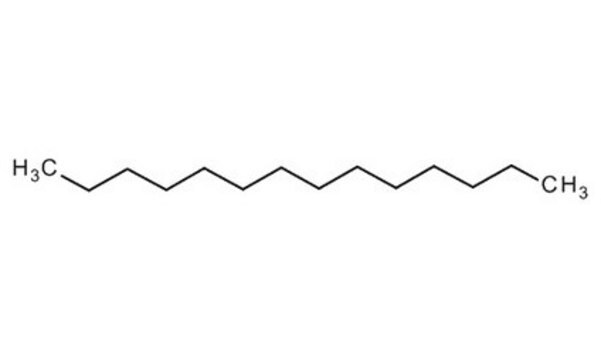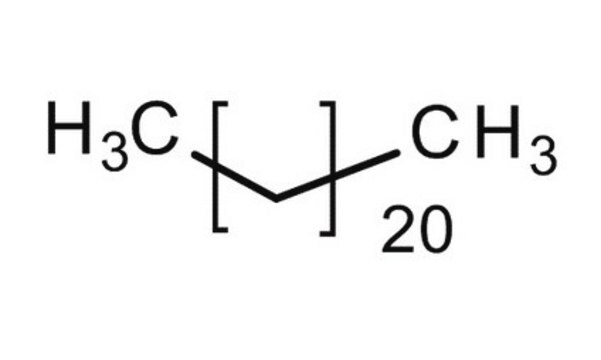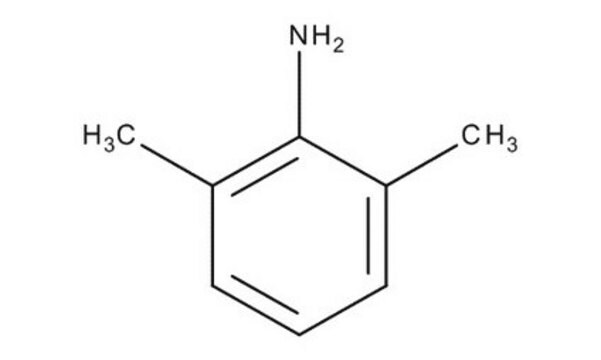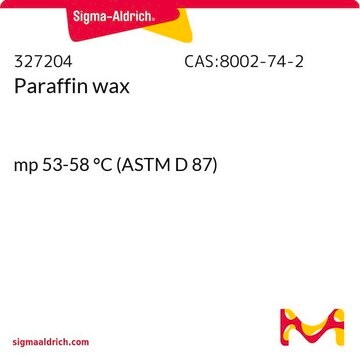8.20547
n-Eicosane
for synthesis
Synonym(s):
n-Eicosane
About This Item
Recommended Products
vapor pressure
<0.001 hPa ( 25 °C)
Quality Level
Assay
≥98.0% (GC)
form
crystals
bp
204-206 °C/20 hPa
mp
34-37 °C
transition temp
flash point 176 °C
density
0.79 g/cm3 at 20 °C
storage temp.
2-30°C
InChI
1S/C20H42/c1-3-5-7-9-11-13-15-17-19-20-18-16-14-12-10-8-6-4-2/h3-20H2,1-2H3
InChI key
CBFCDTFDPHXCNY-UHFFFAOYSA-N
Application
- Effect of temperature and graphite particle fillers on thermal conductivity and viscosity of phase change material n-eicosane: This study discusses the enhanced thermal conductivity and viscosity changes of n-eicosane when mixed with graphite particle fillers, important for applications in energy storage and thermal management (Srinivasan et al., 2017).
- Self-Assembly Synthesis of Microencapsulated n-Eicosane Phase-Change Materials with Crystalline-Phase-Controllable Calcium Carbonate Shell: This paper covers the synthesis of microencapsulated n-eicosane with a calcium carbonate shell, crucial for enhancing thermal energy storage systems in drug delivery mechanisms (Yu et al., 2014).
- Preparation and thermal properties of n-eicosane/nano-SiO2/expanded graphite composite phase-change material for thermal energy storage: This research explores the preparation and enhanced thermal properties of n-eicosane composites, beneficial for applications in material sciences focusing on energy efficiency (Zhang et al., 2020).
- An experimental study of enhanced heat sinks for thermal management using n-eicosane as phase change material: This article evaluates the use of n-eicosane in enhancing heat sinks, which is significant for designing more efficient cooling systems in pharmaceutical manufacturing processes (Arshad et al., 2018).
Analysis Note
Melting range (lower value): ≥ 36 °C
Melting range (upper value): ≤ 39 °C
Identity (GC): passes test
Due to its specific melting range the product may be solid, liquid, a solidified melt or a supercooled melt.
Signal Word
Danger
Hazard Statements
Precautionary Statements
Hazard Classifications
Asp. Tox. 1
Storage Class Code
11 - Combustible Solids
WGK
WGK 3
Flash Point(F)
Not applicable
Flash Point(C)
Not applicable
Certificates of Analysis (COA)
Search for Certificates of Analysis (COA) by entering the products Lot/Batch Number. Lot and Batch Numbers can be found on a product’s label following the words ‘Lot’ or ‘Batch’.
Already Own This Product?
Find documentation for the products that you have recently purchased in the Document Library.
Customers Also Viewed
Our team of scientists has experience in all areas of research including Life Science, Material Science, Chemical Synthesis, Chromatography, Analytical and many others.
Contact Technical Service











